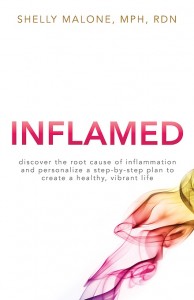Dropping the Struggle with Change
by Roger Housden
Change itself is the one certainty we can be absolutely sure of. You might say this is obvious. We all know this already. Except that we don’t, or at least we don’t often act as if we do, when change arrives on our doorstep. We may have lived for years as the lead character in a story that has enabled us to feel secure in our job, in our family relationships, in our place in the world. Or we may have lived for decades secure in the story of our suffering, the injustice done to us, the bad hand we were given.
Either way, our belief in the story is what creates some sense of a solid identity, which in turn gives us the illusion of security. But then the house of cards can fall at any time, as we also know from our experience, which is why, deep down, however rosy our picture may seem, a constant vein of subliminal anxiety about what might happen next is likely to be running through us.
Our life is already, even now, slipping through our fingers. So given that nothing we are familiar with, including ourselves, is going to last, how can we live another day without breaking out into a cold sweat?
We can bow to whatever passes across our landscape. We can trust the inscrutable intelligence of the life that is living us, as it is showing up for us, in this very moment. If it is sorrow, let us make friends with sorrow. Let us not drown but swim in the waters of sorrow. Naomi Shihab Nye, in her wonderful poem “Kindness,” says that if you are ever to know what kindness really is,
You must lose things,
feel the future dissolve in a moment
like salt in a weakened broth.
Why does she say this? Because the experience of loss brings us close, not only to someone dear whom we may have lost but to the whole of humanity; for every individual has and always will know loss. Loss breaks the heart open, and when the heart breaks open we become a kindness to ourselves and to the world.
In the great themes of life — love, loss, parting, and death — poetry can surpass scripture in slipping the visceral experience of a deep truth into the bloodstream. It feeds the imagination with shimmering images more than the mind with the letter of the truth. In his Sonnets to Orpheus, Rilke urges us:
Want the change. Be inspired by the flame
Where everything shines as it disappears.
(translated by Anita Barrows and Joanna Macy)
Exquisite image! Why does he exhort us to want the change? Because change is the way it is. We harbor notions of what is good for us and what is not, and try to organize and strategize accordingly. Yet life does what it does without concern for our preferences, so Rilke is urging us to look beyond the parade of circumstances and events to the fundamental fact of change itself. In wanting the change, we are aligning ourselves with truth, with what is already happening.
We flow rather than self-consciously make our way. In that flow, the sense of who we are and where we are going becomes more malleable and fluid, more responsive to the conditions around us instead of bound by fixed beliefs and agendas. In the flow of change, we forget ourselves, and a deeper remembrance emerges — the remembrance of being always and ever joined to a greater life — not as an elegant concept but as a lived experience in the moment.
So Rilke is urging us to want the change that is happening, to embrace it, whatever it is. If we are in the middle of a divorce, let it be that. If we have lost our job, let it be that, and if we are dying, may it be so. Of course it’s not easy. Nobody willingly allows herself to be dismembered, torn apart, crushed like a grape between the fingers. The ego will never assent to the sacrifice of the story it has so lovingly tended. The impulse must come from something else in us, another organ of awareness, you might say, that knows somehow, however much it hurts, however much we may be on the rack — a sacrificial lamb, it may seem to us — that what is happening is true, necessary, inevitable, and ultimately, therefore, good. .
# # #
Roger Housden is the author of Dropping the Struggle and numerous other books, including the best-selling Ten Poems series, which began in 2001 with Ten Poems to Change Your Life and ended with Ten Poems to Say Goodbye in 2012. Visit him online at www.RogerHousden.com.
Excerpted from the book Dropping the Struggle: Seven Ways to Love the Life You Have. Copyright © 2016 by Roger Housden.










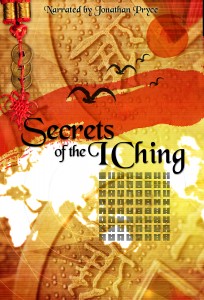 In her documentary, THE SECRETS OF I CHING, filmmaker Bettina Wilhelm goes in search of the life and achievements of her grandfather, Richard Wilhelm, by following in his footsteps through China and Europe. She combines historical exposition with pictures of China today in pursuit of the essential theme of Richard Wilhelm’s life: to discover how the great truths and wisdom of mankind can outlast historical change and continue to retain their relevance. Richard Wilhelm was fascinated by the cultural heritage of the universal wisdom he discovered in the Chinese classics. With his translations he tried to impart these Chinese cultural treasures, so that Europe and the West might meet together, eye to eye and on a par. Wilhelm’s indefatigable efforts and the fascinating texts he made available, give the film a longlasting vibrancy.
In her documentary, THE SECRETS OF I CHING, filmmaker Bettina Wilhelm goes in search of the life and achievements of her grandfather, Richard Wilhelm, by following in his footsteps through China and Europe. She combines historical exposition with pictures of China today in pursuit of the essential theme of Richard Wilhelm’s life: to discover how the great truths and wisdom of mankind can outlast historical change and continue to retain their relevance. Richard Wilhelm was fascinated by the cultural heritage of the universal wisdom he discovered in the Chinese classics. With his translations he tried to impart these Chinese cultural treasures, so that Europe and the West might meet together, eye to eye and on a par. Wilhelm’s indefatigable efforts and the fascinating texts he made available, give the film a longlasting vibrancy. PR CONTACT:
PR CONTACT: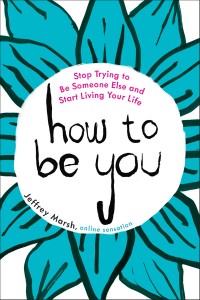 Excerpted from HOW TO BE YOU: Stop Trying to Be Someone Else and Start Living Your Life by Jeffrey Marsh, available August 2, 2016. Printed with the permission of TarcherPerigee/Penguin, a division of Penguin Random House. Copyright Jeffrey Marsh. ©2016.
Excerpted from HOW TO BE YOU: Stop Trying to Be Someone Else and Start Living Your Life by Jeffrey Marsh, available August 2, 2016. Printed with the permission of TarcherPerigee/Penguin, a division of Penguin Random House. Copyright Jeffrey Marsh. ©2016.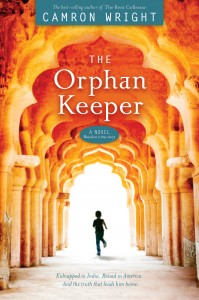 By Taj Rowland
By Taj Rowland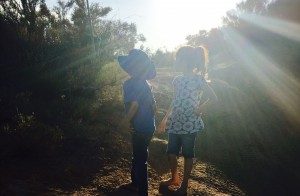 By Oyuki Aguilar.
By Oyuki Aguilar.